As consumers get more label-savvy and wellness-driven, brands like Justhuman are bringing neuroscience into skincare.
By Ahaana Khosla
Experts:
- Roshini Jaiswal, Founder & CEO JustHuman
- Sarvangi Shah, Founder Noya Beauty Works
TL;DR:
- Thanks to quick and e-commerce platforms, India is the world’s fastest-growing online market for beauty products, projected to grow by 10-11% till 2028.
- Over 70% of Indian shoppers look to social media and online reviews for clean beauty discovery, but only 26% trust these sources for purchase decisions.
- Wellness and personal finance are the top two priorities for Indian consumers.
Imagine this: you’ve had a brutal week at work, you’re stressed out, and you look exactly how you feel – exhausted and lifeless. But what if your skin care took away the dullness from not only your face but also your life? This is the promise of neurocosmetics.
“These are skincare and personal care products designed not just to improve how your skin looks, but also how you feel. They work on the skin-brain axis: the two-way communication channel between your skin and your nervous system,” says Roshini Jaiswal, founder and CEO of homegrown neurocosmetics brand JustHuman.
Similar to the gut-brain connection, JustHuman (and neurocosmetics in general) claims to reduce stress, support sleep, and improve focus and mood through scientific ingredients like probiotics, proteins, acids, microbiome and oxytocin-boosting algae as well as natural ones like cinnamon, rose hip, aloe vera, and jojoba oil. The brand also uses “patented technology” that penetrates through the “keratinous and lipid layers” and delivers “directly to the dermis”, thereby influencing the skin-brain axis.
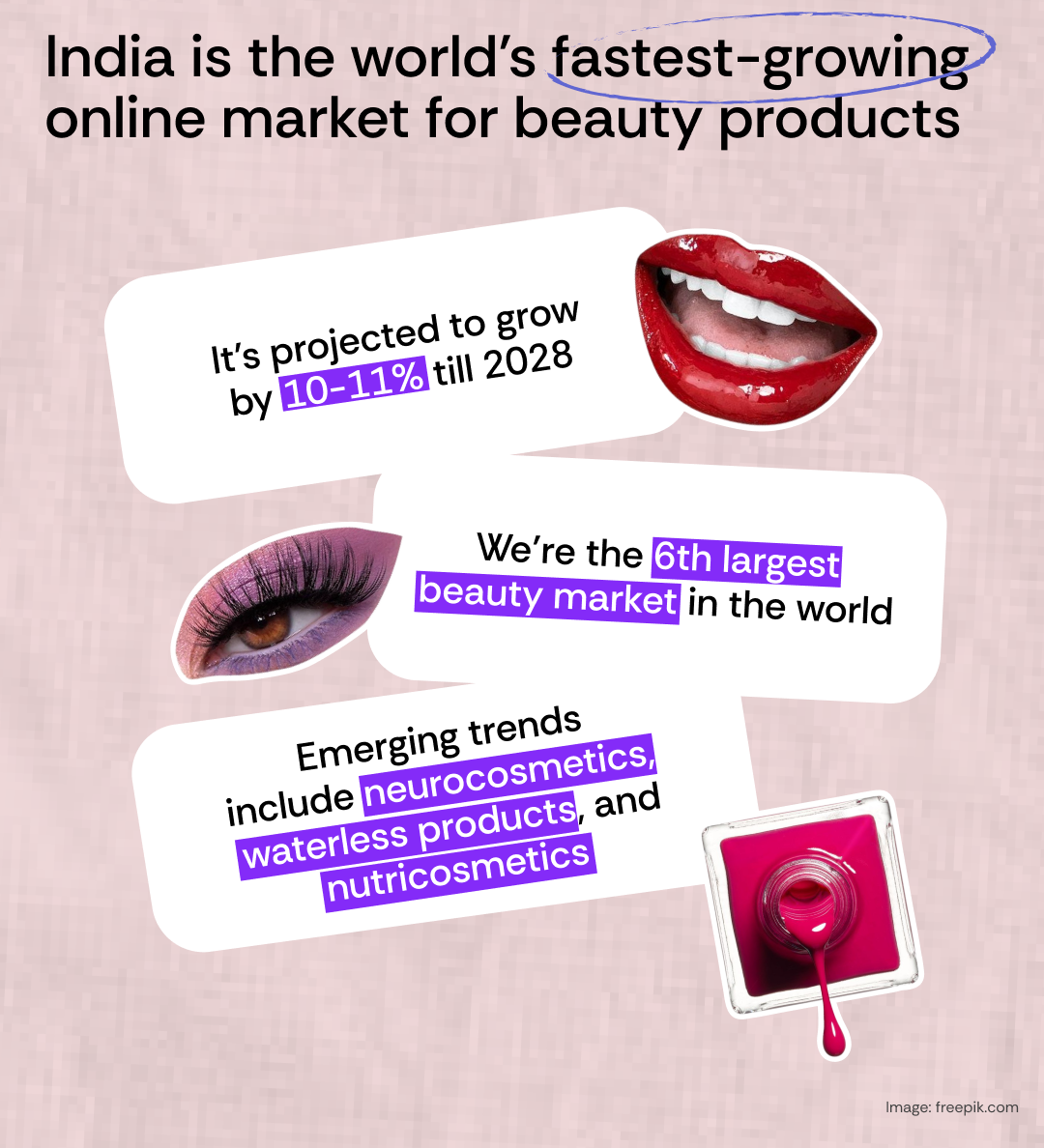
Indians are already signalling readiness for such products. “54% of global consumers are willing to pay a premium for products with natural or organic claims… It’s clear there’s a strong shift towards healthier beauty choices that support overall well-being,” says Sarvangi Shah, founder of Noya Beauty Works, a beauty consultancy in Mumbai.
Quick and e-commerce platforms have made India the world’s fastest-growing online market for beauty products, projected to grow by 10-11% till 2028. Neurocosmetics has been tagged as an emerging trend in the country, which is also the world’s sixth-largest beauty market. “While India is still at a very early stage, even a 1-2% penetration of neurocosmetics creates a billion-dollar opportunity,” says Jaiswal.
THE CONSUMER STORY
DEMAND FOR ‘SCIENCE-BACKED’ BEAUTY PRODUCTS
Being fed a flurry of new brands and trends on social media, the Indian beauty consumer is hyperexposed and, therefore, increasingly discerning. They’re no longer willing to buy into attractive packaging and influencer hype alone.
A 2025 Mintel report says “science-backed” beauty products log the “the highest increase in association with trust.” Even global research shows that “60% of consumers expect brands to disclose the source of their ingredients and 72% want clear explanations of what ingredients do.”
JustHuman is hoping to tap into this cultural shift. While Jaiswal has previously said that some science around neurocosmetics is still at a “nascent stage”, her brand is forthcoming with information on its formulations, processes, and ingredients and is actively positioning itself as validated by science.
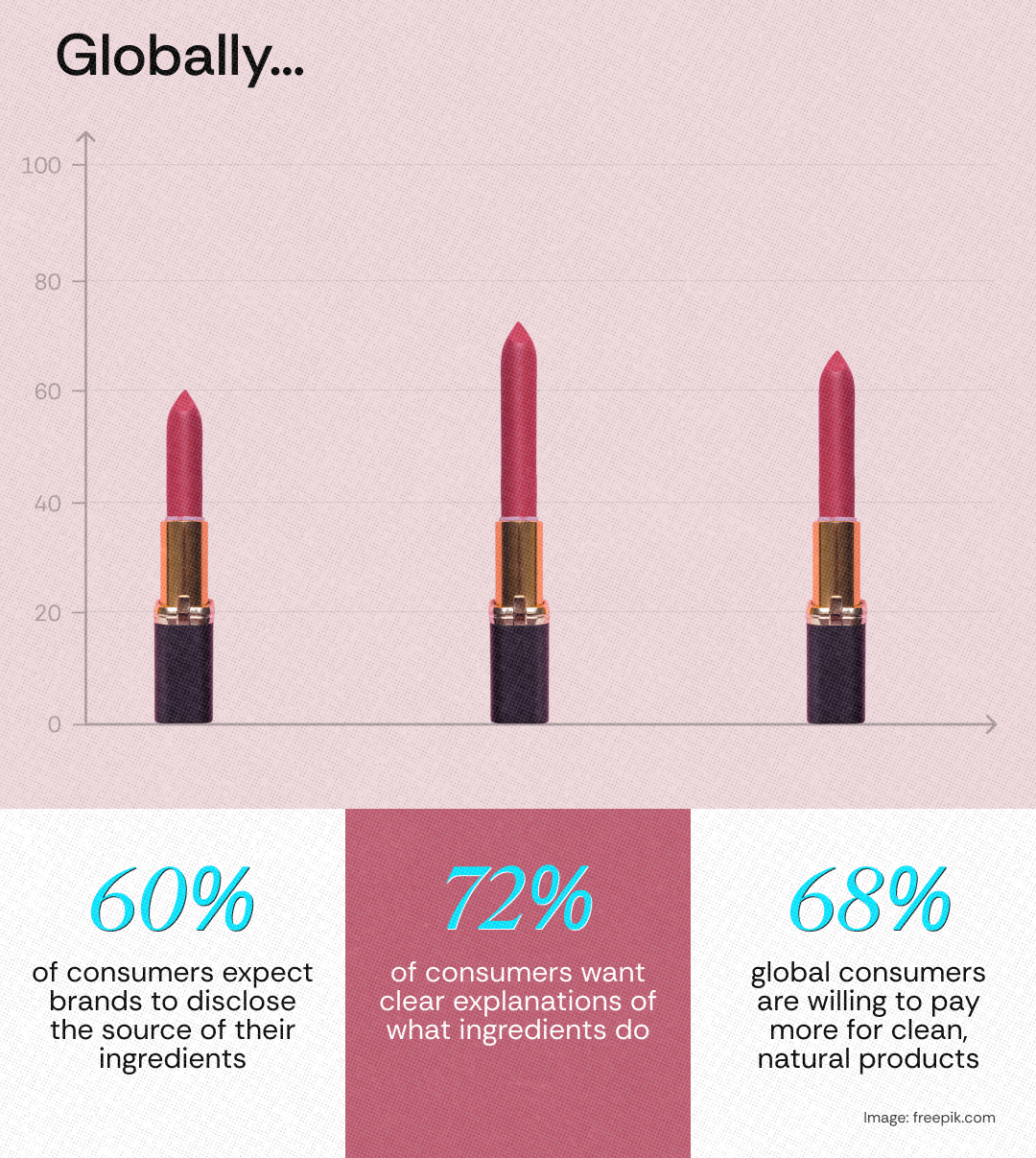
INDIANS ARE MORE STRESSED THAN GLOBAL COUNTERPARTS
Around 30% of Indians in the workforce feel stressed on a daily basis and at higher levels than their counterparts in the U.S., Europe, Canada, and Africa. Even within India, women and younger cohorts like millennials and Gen Z are disproportionately impacted by rising levels of stress and anxiety.
Psychological struggles like these aren’t invisible – they can show up as hair loss, acne, migraines and skin issues. “These beauty concerns are becoming so increasingly common and are making women increasingly turn to beauty products that address both appearance and emotional balance,” notes Jaiswal.
Neurocosmetics, she says, sit perfectly in this space. “When you apply Volini on your skin, the pain is instantly eased. That's exactly what I mean when I say ‘skin-brain connection.’ The skin has thousands of nerve endings; these nerve endings create neurotransmitters like oxytocin, dopamine, and serotonin. These neurotransmitters are responsible for how our skin feels and how you feel,” explains Jaiswal.
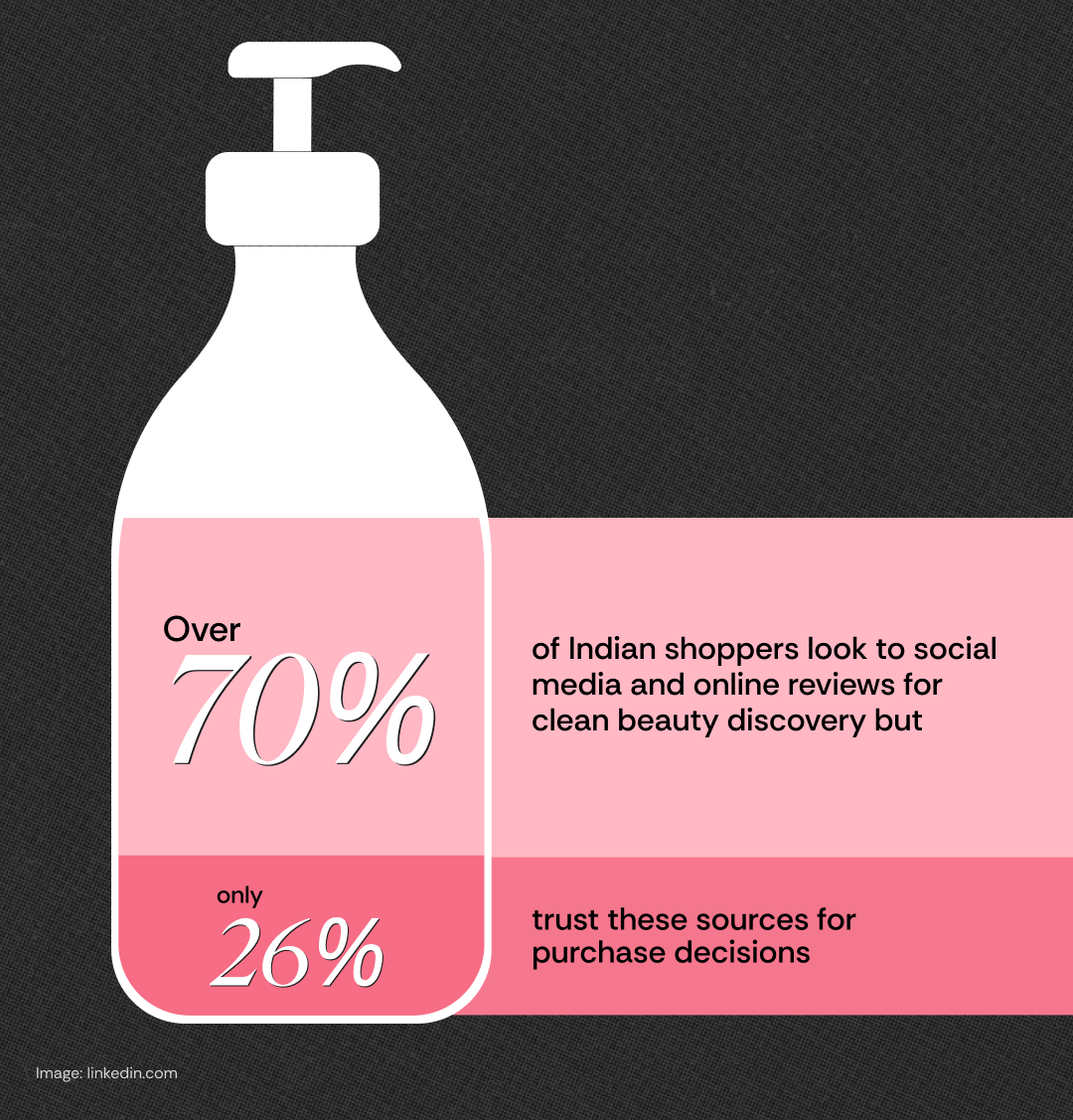
WELLNESS IS A TOP PRIORITY
Wellness and personal finance are the top two priorities for Indian consumers, signalling a shift in how consumers are thinking that will soon shape purchasing decisions. “Indian consumers are moving from ‘beauty for appearance’ to ‘beauty for wellbeing’,” says Jaiswal, adding that JustHuman’s beauty-wellness hybrid content is seeing two times more engagement across social platforms, year on year.
“Our products offer added benefits like better mood, balance and emotional well-being in ways that feel both innovative and authentic. This is clearly evident in our data – 70% of repeat buyers cite emotional well-being like feeling calmer and more balanced as a reason for returning,” says Jaiswal.

HOW BRANDS CAN TAP IN
CLEAN, SCIENCE-FIRST POSITIONING
Today’s consumers are increasingly label-savvy: they research ingredients and sourcing before making a purchase and expect transparency. In fact, 68% of global consumers are willing to pay more for clean, natural products.
Brands now have an opportunity to advance their science-led positioning by focusing on ingredient potency and delivery systems. For example, The Whole Truth, a food and nutrition brand, is known for its “clean-label” ethos and The Ordinary, a Canadian skin care brand, has been a modern pioneer for science-backed beauty.
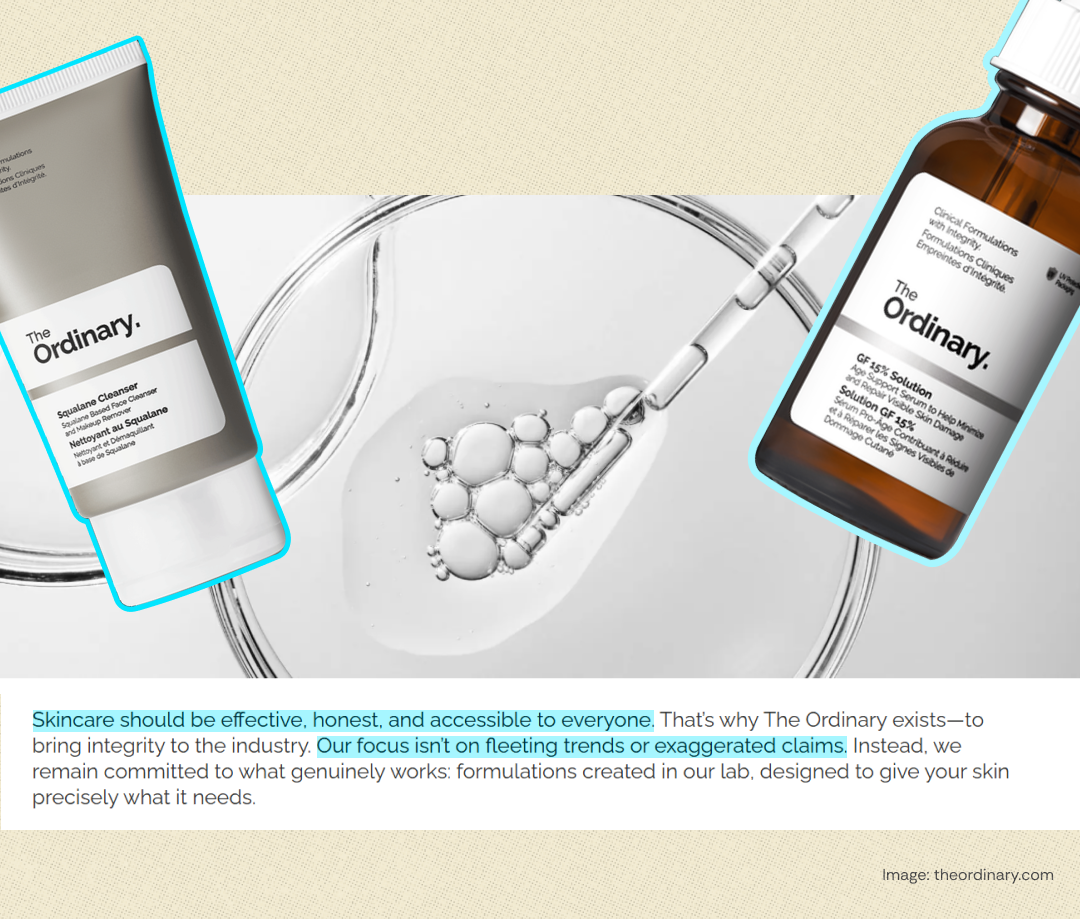
PROMOTE SELF-DISCOVERY AND CUSTOMISED RITUALS
A one-size fits all approach no longer resonates with Indians – 44% are interested in personalised hair care products tailored to their individual needs. To make consumers feel seen, brands must offer flexible and customisable solutions, rituals and formats. “The goal should be to guide customers on a journey of self-discovery, showing them how aromas, textures, and sensorial experiences can influence how they feel and help them complete their day in a more balanced way,” says Shah.
USER-GENERATED CONTENT BUILDS TRUST
Reportedly, over 70% of Indian shoppers look to social media and online reviews for clean beauty discovery, but only 26% trust these sources for purchase decisions. Brands could bridge this “trust gap” by collaborating with skin care experts to validate their products’ promises as well as spotlight real consumer stories and testimonials.
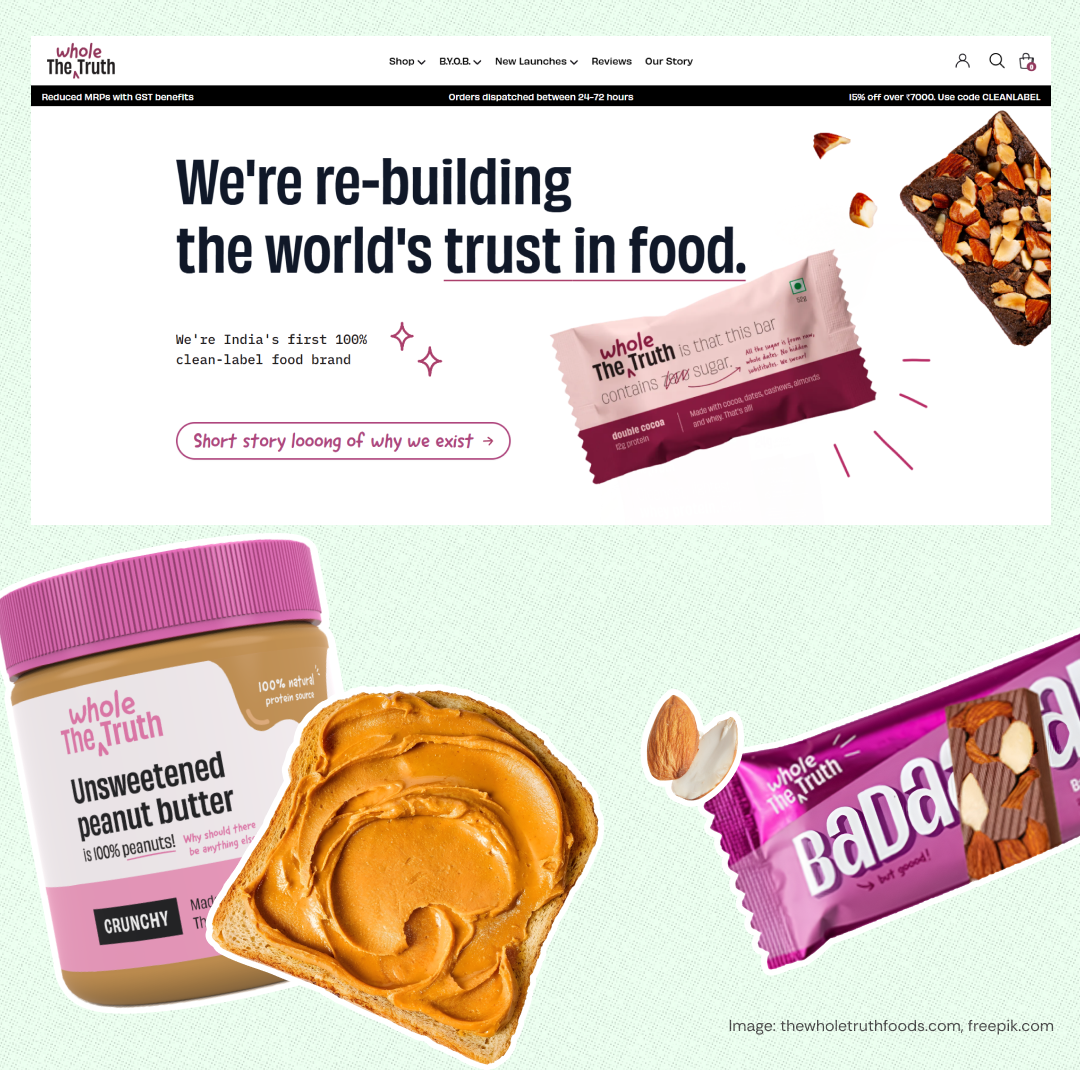
“Keeping the early success of JustHuman in mind, brands should look at this as a 2.0 stage where they build and nurture very strong communities,” says Shah. Instead of going all-in on flashy, paid influencer campaigns, brands should realise that people are increasingly gravitating towards relatable voices that they feel connected to.
Ahaana Khosla is a trend forecaster, cultural strategist, writer, and editor with a background in fashion, beauty, and lifestyle journalism. She writes about consumer behaviour and emerging trends with bylines in Vogue Business, Vogue India, Harper’s Bazaar UK & India, and BeautyMatter. Ahaana is also the founder of Foresight Forum, a platform dedicated to decoding the future of fashion, beauty, and hospitality through sharp insights and accessible storytelling. Her work bridges global perspectives with local relevance, helping brands and creatives stay ahead of the curve.
